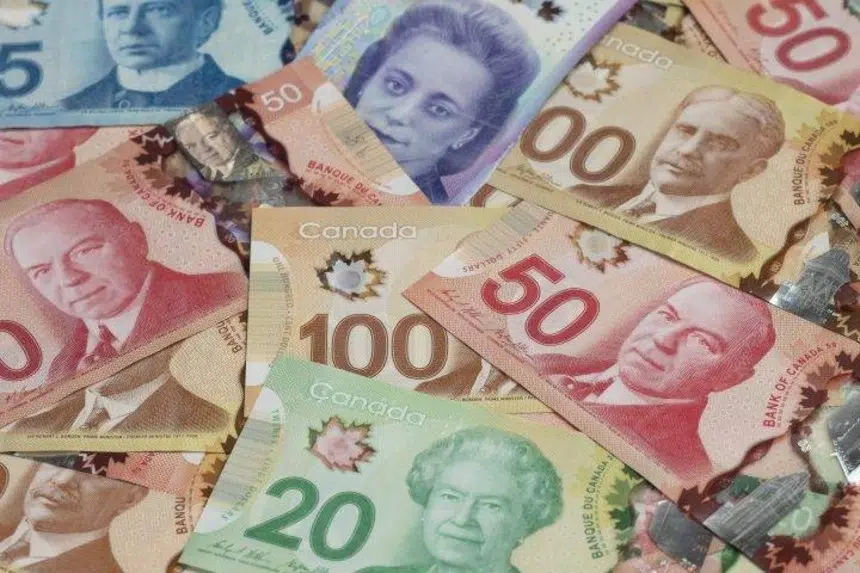A reversal of fortunes for Saskatchewan has led to the reversal of a plan by the provincial government.
Thanks to resource revenue more than $1.5 billion higher than was expected when the budget was released in March, the provincial government unveiled Tuesday what it called a “four-point affordability plan” to help residents.
In addition to the $500 Saskatchewan Affordability Tax Credit announced Monday by Premier Scott Moe, the government also is reversing its plan to charge the provincial sales tax on certain items starting Oct. 1.
According to a media release, the PST won’t be charged on fitness and gym memberships as well as some recreational activities.
The government said the PST won’t be charged to residents under the age of 18 who are participating in recreational activities, including golf, curling, hockey, tennis, basketball and similar sporting activities. Those activities will be taxable for those 18 years of age and older.
The PST also won’t be applied to fitness classes, personal training and other fitness activities offered through municipal recreational facilities, or to arts, cultural and sports programming or membership fees for things like gymnastics, art classes or acting classes.
“We made the decision to do a balanced approach considering where our revenues are at and we are going exempt them as well as children’s recreational activities so that that makes life more affordable for families,” Finance Minister Donna Harpauer said during a media conference.
The provincial sales tax will still be levied on tickets for things like sporting events, concerts, trade shows, fairs, rodeos, movie theatres, water parks, escape rooms, batting cages and arcades.
“We still are very mindful that should our resource revenues (and) prices fall, we still have and we still will be expanding in health care and education costs and we need a revenue stream in order to cover it — albeit small. Everything helps,” explained Harpauer.
$500 tax credit
All Saskatchewan residents aged 18 and over as of Dec. 31 and who have filed a 2021 tax return as a resident of Saskatchewan will receive a $500 cheque this fall.
Harpauer explained the reason children were excluded is because the government decided the most accurate database to include as many people in the province as possible would be income tax. She said it’s hard to get accurate information on children.
The government estimated the tax credit will cost it $450 million, with an estimated 900,000 cheques to be mailed.
The money will not be taxable and won’t be counted toward exempted income for those on assistance programs.
Tax rate reduction
Another point of the plan was the extension of the small business tax rate reduction.
The rate will be zero per cent retroactive to July 1 of this year, and the restoration of the rate to two per cent will be delayed to July 1, 2024.
“This will help small businesses as they continue to recover from the pandemic, while facing new challenges like inflationary pressures, interest rate hikes and supply chain issues,” the government’s release said.
The government said the move will save small businesses $93.1 million over the next three years, or an average of $3,000 for each of the 31,000 small businesses in Saskatchewan.
Retiring operating debt
The fourth point of the plan was the retirement of up to $1 billion in operating debt.
The government said the debt is now forecast to be $1.7 billion lower by the end of the fiscal year than was projected when the budget was released.
The projected surplus of $1.04 billion gives the government the ability to retire up to $1 billion in debt, and the province doesn’t need to borrow for operations due to the improved financial position.
When the budget was released in March, a deficit of $463 million was expected.
The government said debt retirement and lower borrowing results in lower financing charges because of a projected $49-million decrease in interest costs.
Decisions
Harpauer said there were a lot of conversations about how to put together this plan. She said the government did look at rolling back the SaskPower rate hike and at the excise gas tax as well, but she said government found that other mechanisms exclude some people.
“This is a resource that we feel belongs to all Saskatchewan people and every other mechanism excludes some people. Renters, for example, don’t necessarily have to pay their utilities. Not all people, especially low-income people, have a vehicle and they’re putting fuel in,” said Harpauer.
“This was, in essence, a way to distribute the funds in a very fair, equitable way, recognizing that all people in Saskatchewan own the resource and all people in Saskatchewan will benefit from this one-time tax credit.”
Harpauer said that while gas prices and utility costs are going up, so are costs for things like school supplies and groceries.
“This allows the flexibility for each and every individual and family to make their decisions on where this helps. It’s all different. Each household has different pressures,” she explained.
The plan is centred around addressing affordability but people in the province have been dealing with runaway inflation for months. Harpauer said the reason the government didn’t do anything sooner is simply because there wasn’t enough information.
She said it’s a bit of the farmer in her.
“I would not — right after I put the crop in and even if it looked like it was coming up and we had the right rain — I still don’t want to go out and order that tractor, that combine or that large piece of equipment and make that financial commitment until I’m a little bit closer to bringing that crop in,” said Harpauer.
“I just didn’t feel comfortable making a relatively large financial commitment with very little data to base it on.”
Too little too late
The Saskatchewan NDP has been calling on the government to do something around affordability for months, and now that it has, the Official Opposition feels it’s too little too late.
Trent Wotherspoon, the NDP’s finance critic, said this plan is the government, on one hand, giving people back their own money.
“But then with the other hand they continue to pile on with the new taxes and the power bill hikes and the energy bill hikes for the long term, into perpetuity,” said Wotherspoon.
He said the “windfall” money should have been spend on meaningful cost-of-living relief into the long term.
The NDP, if in the same position, would have cut the PST expansion completely and cut the power and energy rate increases, would have temporarily suspended the fuel tax, would have put badly needed money into hospitals and schools, and would have offered a rebate to everyone, including children.
“The cost of raising kids is high in Saskatchewan right now so (excluding children) certainly is not fair on this front,” said Wotherspoon.
He said the province’s budget and its plan don’t rise to address the cost-of-living challenge facing the province right now.
— With files from 980 CJME’s Lisa Schick







